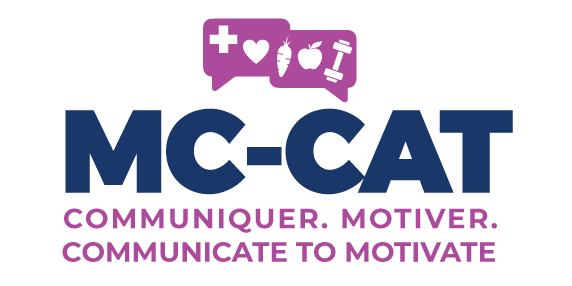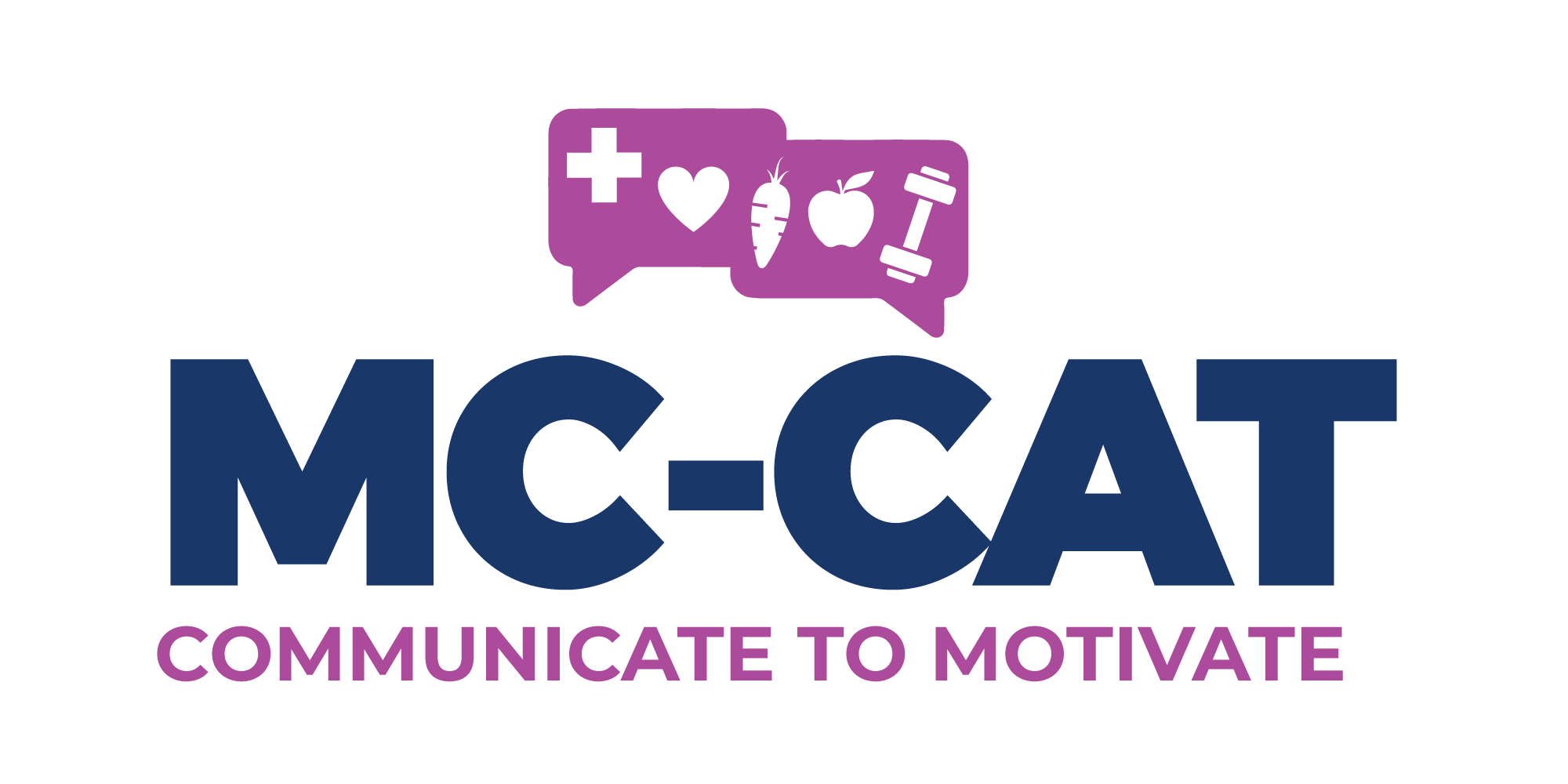Motivational Communication Competency Assessment Test (MC-CAT)
AN ASSESSMENT TOOL TO MEASURE MOTIVATIONAL COMMUNICATION SKILLS
The Motivational Communication Competency Assessment Test (MC-CAT) is a research initiative led by the Montreal Behavioural Medicine Centre (MBMC). It is focus on evidence-based behaviour change counseling with a particular emphasis on Motivational Communication. Proven effective in motivating and sustaining health behaviour changes, behaviour change counseling is essential in supporting lifestyle modification challenges spanning from smoking cessation, physical activity, healthy nutrition and medication adherence.
The MC-CAT is an evolving assessment tool specifically designed to measure physicians' Motivational Communication skills. The tool is scientifically valid, fun, easy, and quick to use. This nifty tool has huge potential to enhance health professionals’ clinical practice and makes a real difference in consultations with resistant patients.
The MBMC is actively inviting physicians and healthcare professionals (e.g., nurses, dietitians, physiotherapists, psychologists, etc.) to partake in the MC-CAT validation process in preparation for its official launch. Interested in participating? Learn more.
ABOUT MC-CAT
The MC-CAT project is co-directed by Kim Lavoie, Ph.D., and Simon Bacon, Ph.D., co-directors of the Montreal Behavioural Medicine Centre (MBMC). To know more about them, click here.
MC-CAT case presentation
More about the MC-CAT
-
Poor health behaviours such as smoking, physical inactivity, unhealthy diet, and medication avoidance are important risk factors in the development and worsening of chronic diseases (like heart and lung disease, obesity, diabetes, and cancer). To help people to engage in good health behaviours, physicians typically give their patients advice about what they should (and should not) be doing to improve their health. However, patients often resent being “told what to do” – which tends to make them resistant to changing their behaviour.
Healthcare professionals often achieve relatively low success rates, typically around 5% to 10%, when helping patients engage in lasting healthy behaviours.
Motivational Communication is a communication style used to motivate people to adopt a healthy lifestyle. It helps them explore how having good health behaviours can help them achieve their personal life goals. Motivational Communication is personalized so it can be used with people of all ages, ethnic origins, cultures, and languages. It has been very effective in helping people quit smoking, lose weight, and become more active. As a result, more and more physicians are being trained to use Motivational Communication with their patients.
Unfortunately, only 3 out of 17 medical schools in Canada offer training in this approach; a glaring training gap exists. There is also no suitable or convenient platform for evaluating the efficacy of training in this approach. Effective and easy-to-use evaluations are important to ensure the quality of training programs and also to ensure patients benefit from the approach. This is where the Montreal Behavioural Medicine Centre steps in, pioneering the development of a cutting-edge Motivational Communication training framework tailored to the needs of healthcare professionals who want to provide better support for their patients.
-
This research initiative focuses on the development of a new evaluation —the Motivational Communication Competency Assessment Test or MC-CAT— to measure Motivational Communication skills and provide meaningful feedback to physicians on their proficiency. The MC-CAT is a user-friendly and streamlined online evaluation tool meticulously crafted to gauge health professionals' expertise in the 11 core competencies of Motivational Communication.
Helping professionals learn effective communication methods for supporting patients to adopt healthier lifestyles is critical for improving health outcomes in those with, or at risk of, chronic diseases.
-
Before the official launch of this groundbreaking tool, we have an unwavering commitment to rigorously validating the MC-CAT. The Montreal Behavioural Medicine Centre is actively seeking healthcare professionals of all specialties to participate in the MC-CAT validation process.
Their participation is concise and straightforward: Participants are asked to complete the MC-CAT© twice within a two-week timeframe to evaluate its test-retest reliability.
After completing both online evaluations, participating physicians will be eligible to claim continuing professional development (CPD) credits under Section 2: Self-Learning Activity (Systems Learning) as defined by the Royal College of Physicians and Surgeons of Canada. Participants are responsible for contacting their professional order and claiming the credits themselves.
If you're interested in participating, please register.
Meet our team
Meet our Team
-

Kim Lavoie
CO-DIRECTOR
-

SIMON BACON
CO-DIRECTOR
-

NOÉMIE TREMBLAY
DOCTORAL STUDENT
-

BRIGITTE VOISARD
DOCTORAL STUDENT
-

CLAUDIA GEMME
PSYCHOLOGIST
-

VINCENT GOSSELIN BOUCHER
Collaborator




